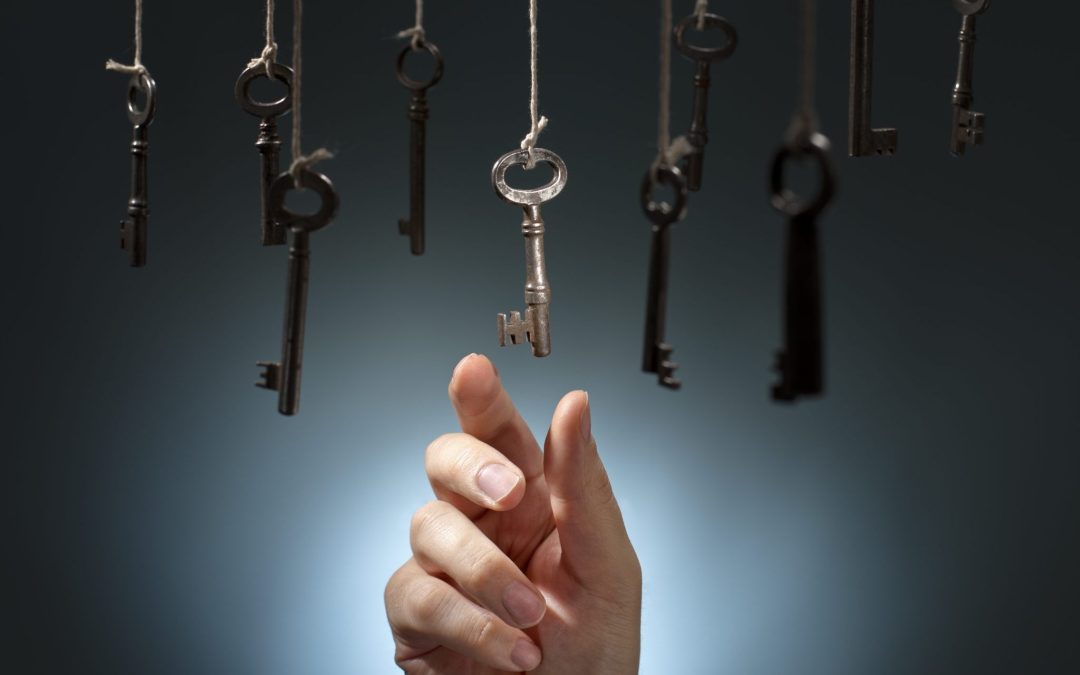I read a tweet the other day that said “decluttering is as simple as picking up each item, and making one of the following choices”. It linked to a blog post showing six different options for what you could do with the item.
Sigh.
The problem has never been that the process is complicated.
The problem also isn’t that we don’t have enough blog posts telling us to “pick up each item, and decide whether to keep it or get rid of it”. And while I’ll admit that giving people six options instead of three is at least a change of pace (as far as decluttering methods go, anyway), the problem has never been that we don’t have enough options.
If we could pick up each item in our possession and make clear, rational choices about what was truly valuable to us, the entire “professional organizer” industry would implode with an amount of force that would make a black hole look like a busted dollar-store vacuum cleaner.
Here’s the thing.
Processing is simple. Processing is the part where you pick up each item, and put it into some sort of a “keep” or “toss” pile. Yes, it can be time consuming, but there’s nothing complicated about the procedure. The problem is that what we usually choose to do with everything is “keep it!”, mostly because….
Decluttering is hard. Decluttering is the part of processing where you dig into the depths of your psyche and rip apart the completely irrational attachments that you have to stuff. It’s the part where you come to grips with the fact that….
- Grandma is gone, and hoarding her stuff won’t bring her back.
- A three-thousand-dollar piece of exercise equipment isn’t currently worth twenty cents on the dollar.
- Much of what you’ve been told about happiness is a complete and utter lie
And all the professional organizers and decluttering systems and storage options and time-saving gadgets and “tips and tricks” blogs and everything else that’s sprung up to separate desparate people from their money? None of it will do a damn bit of good if those people don’t change the processes (both mental and physical!) that got them into the mess in the first place.
And the funny part? If they change their processes, they find they usually don’t need the rest of the “tips and tricks”. That’s the real key to decluttering.
This is why I typically don’t write “100 tips for decluttering your basement” posts. I’d much rather help you get to the point where you know what you want, you know what’s in the way of that, and because of that knowledge you can declutter your basement without a “100 tips” article.
That’s what I’m after. I could be crazy, but I’d like to think that’s what you’re after, too. What are your thoughts?


It’s completely true. Too many people rationalize that huge pile of junk they threw out is worth at least 4 or 5 trips to Target to replace it. It’s not minimalism, it’s just newism. We’re on the other side saying life is so much easier, you’ll have more free time, you’ll have less stress and anxiety when people drop by, you won’t have to hunt for things or buy doubles.. and they say they want in, they talk the talk but it’s clear when you read the blogs they’re not heading in that direction.
I like the word “newism”. 🙂 Thanks for commenting Jasi!
Now *that* is a very astute observation. It’s really about knowing what we really want and really need. That’s the hardest part. It’s a hard thing to grasp in many areas of life, not just decluttering. Mindful eating (true normal eating) is entirely about trusting one’s body to know what it needs when it needs it, and achieving a healthy body weight because of that. It’s taken me ages to learn that when I really, honestly need cake it’s okay. But I need to really need the cake. When do I really, honestly need these items? It’s exactly the same question.
Brilliant post!
And of course there’s nothing wrong with having some wants – it’s just a question of prioritizing the wants.
A “want” for a clean, decluttered life is usually diametrically opposed to a “want” for a dozen huge collections of tchotchkes. 🙂
I like the idea of “needing” cake. 😀 Thanks for commenting Joanna!
I go through phases where I’m doing really well with the decluttering, but when some time passes without a lot of decluttering being done, I feel like I go back to the hoarding mentality and I have to go through the whole psychological process again just to get any work done in a new space. So I like it when people ask the questions like “Will this thing make you happy or just stress you out? Where are you going to put it?” Not just when I’m bringing it in, but when I’m decluttering.
Also, I think when you’re in the midst of a difficult cleaning process, sometimes just thinking about the big picture, the end product, is good, because it’s a powerful motivator to say, if we get this cleaned out and get rid of it, we will have this great space that can actually be used for something besides storing things we don’t use.
Abby, I know *exactly* where you’re coming from. I go in phases too; I’ve learned to judge my progress as a long-term thing rather than a short-term thing.
I’m still not perfect, but I’m miles ahead of where I was half a dozen years ago. Hopefully you’re the same way. 🙂
Thanks for commenting Abby!
I’m in my 3rd year of decluttering and only now am I starting to see some light at the end of the tunnel. Without a doubt it’s the decision making process that makes it so time consuming. How easy it is to declutter for someone else. I know I did my Mom’s a couple of weeks back, but guess what some of the stuff ended up at mine ! haha!
The key for me is to stop the flow into the home – to never have the initial attachment to the item.
I’m determined that by next Spring every item in my home will have a purpose and place.
That’s the holy grail of decluttering, isn’t it?
Just don’t bring in any more kitchen stuff – I’ve heard slow cookers are territorial. 😉
I could not agree more.
However…
The same could be said for therapists. If we could just do the digging ourselves, then why would we even need them?! The thing is–sometimes we need to be primed in the right method to get to that life-altering though process. As someone who is (possibly) an aspiring prof. organizer and as someone who has spent far too long in the therapist’s office, I have realized that we *do* need these people out there to help us get where we need to be. In a perfect world, sure, we could all do it ourselves, but in reality, we often need the help. The only problem with such industries is deciphering between you really has the training and knowledge to prime us appropriately v. faux-professionals. If you’ve ever watched Hoarders, you’ll notice that there is one shining prof. organizer. She is my favorite as she understands the psychological issues behind the hoard and has very effective tools to help prime and deal with the hoarders. Anyway…end rant 😉
I agree with you in theory, but in practice I find that sometimes I just need the “cheerleading” of yet another post breaking down the process and making it sound easy.
I wouldn’t pay money for those posts, but they have their place in the motivational category. Sometimes they help you build up the momentum you need to make a run at the project.
Hi Shadlyn! That’s an interesting take on things.
My question would be this – does it help more to hear about the process, or does it help more to hear from people that have had success?
To me, the success stories are more motivating than the minutiae of the process.
I’d love to know your thoughts on that. 🙂 Thanks for commenting!
Yes! They why of keeping can be more important than the what of keeping. Processing the why will tell you whether “this” thing is worth keeping or not. It may still take multiple iterations, though, as the strength of why can change as you eliminate more things.
Exactly! Iteration is *huge* – especially recognizing the need for iteration before the process begins. Takes a lot of the stress off. 🙂
Thanks for commenting Linda!
Everyone’s situation is unique and although some folks have to work through the psychological elements of their clutter habits before they’re ready for change – others can benefit tremendously from having a fresh set of informed eyes assess their clutter and organization issues and gently guide them towards a more productive and inspiring space. I have helped many talented and successful folks declutter and organize their work space only to see great results in their business and how they feel in the newly organized area. Often, due to time constraints, not knowing where to start or what their options are people remain stuck among clutter and piles. The money invested in getting help identifying problem areas and implementing time-saving systems pays for itself pretty fast.
Adam Pash, editor-in-chief of lifehacker.com, believes the best gauge of being well organized, “is just the lack of anxiety that comes from a clean comfortable workspace where you feel like things aren’t piling up and overwhelming you.” If you’re less anxious you’re going to be more focused, and if you’re more focused you’ll be more productive.
The good “professional organizers” are greatly rewarded by the enhanced lifestyle of their clients, not the money.